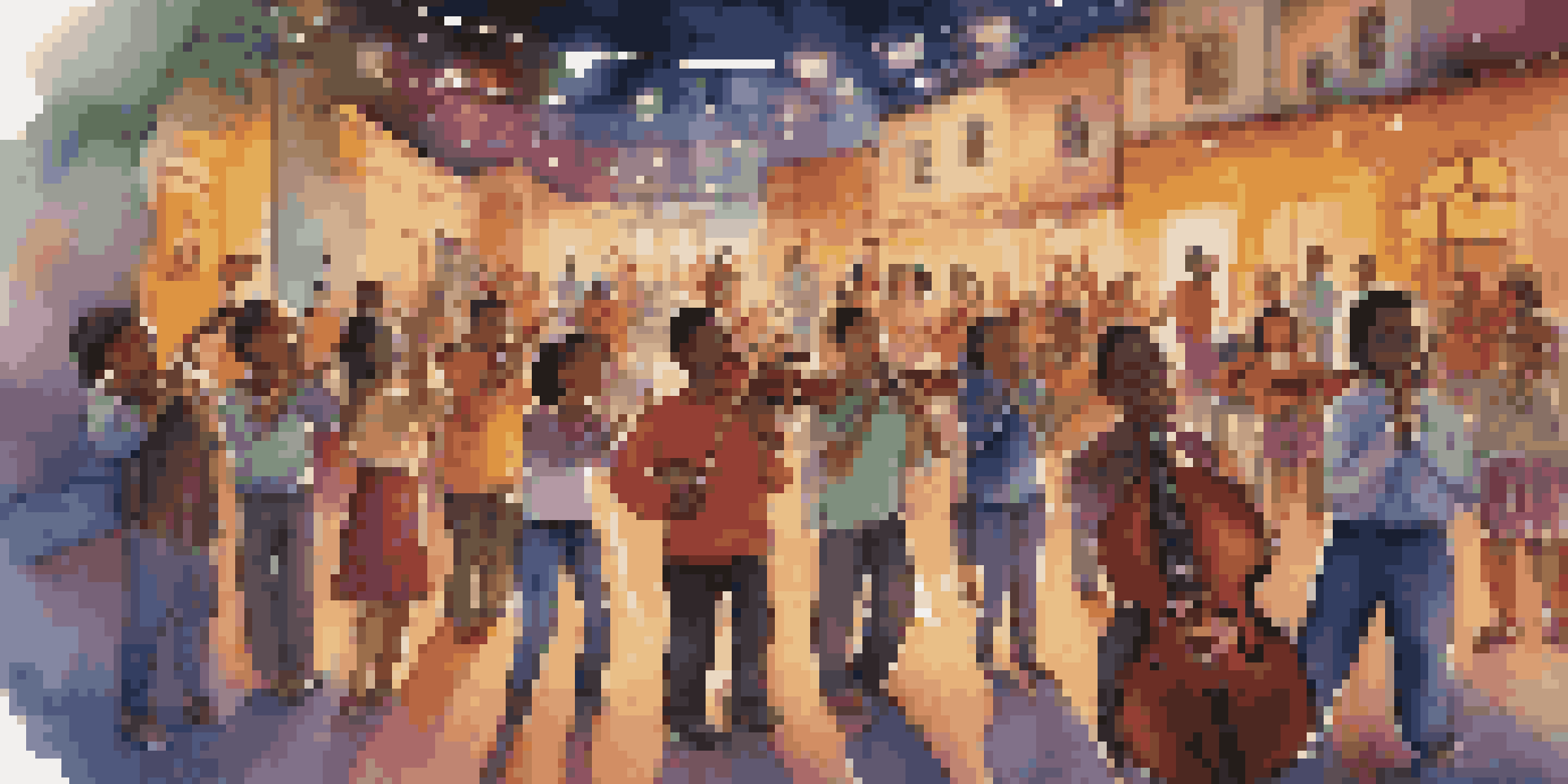The Role of Music in Youth Empowerment and Social Skills

Understanding Youth Empowerment Through Music
Youth empowerment involves giving young people the tools and confidence to make their own choices. Music serves as a powerful medium for this, offering a creative outlet that encourages self-expression. Through songwriting, performing, and collaboration, youth can discover their voices and feel a sense of agency in their lives.
Building Confidence with Musical Expression
When young people engage in music, they often step outside their comfort zones, which can significantly boost their confidence. Performing in front of an audience, whether in a small venue or a school event, helps them confront fears and overcome insecurities. This newfound confidence often translates into other areas of their lives, empowering them to take on new challenges.
Music Boosts Youth Confidence
Engaging in music helps young people step outside their comfort zones, significantly enhancing their confidence.
Fostering Teamwork Through Musical Collaboration
Music is inherently collaborative, whether it's playing in a band or participating in a choir. These experiences teach young people the importance of teamwork and communication, as they must listen to one another and blend their talents. Working together towards a common goal cultivates a sense of community and belonging among youth.
Enhancing Emotional Intelligence with Music
Engaging with music allows youth to explore and express complex emotions, which is a key aspect of emotional intelligence. Through lyrics and melodies, they can relate to feelings of joy, sadness, and everything in between. This exploration not only helps them understand their own emotions but also fosters empathy towards others, enhancing their social interactions.
Collaboration Fosters Teamwork
Musical experiences teach youth the importance of teamwork and communication through collaborative efforts.
Encouraging Cultural Awareness and Diversity
Music is a universal language that transcends cultural barriers, allowing youth to explore diverse backgrounds. By exposing them to different musical genres and traditions, they gain a broader perspective on the world around them. This cultural awareness nurtures inclusivity and appreciation for diversity, which are crucial social skills in today’s global society.
Developing Critical Thinking and Creativity
Creating and interpreting music requires critical thinking and creativity, skills that are invaluable in many aspects of life. Youth learn to analyze lyrics, experiment with sounds, and develop their unique musical styles. This creative process encourages innovative thinking, which can lead to problem-solving skills in both personal and academic settings.
Music Enhances Emotional Intelligence
Through music, youth can explore and express complex emotions, fostering understanding and empathy towards others.
Promoting Resilience Through Musical Challenges
Learning to play an instrument or mastering a vocal technique presents challenges that require perseverance. As youth navigate these hurdles, they develop resilience—a key trait that helps them face setbacks in other areas of life. Music teaches them that failure is often a stepping stone to success, instilling a growth mindset.
Conclusion: Music as a Tool for Lifelong Empowerment
The role of music in youth empowerment is multifaceted, encompassing emotional, social, and cognitive development. By providing a platform for expression and collaboration, music fosters essential skills that young people carry into adulthood. As we recognize the transformative power of music, we can continue to support and promote its role in empowering the next generation.